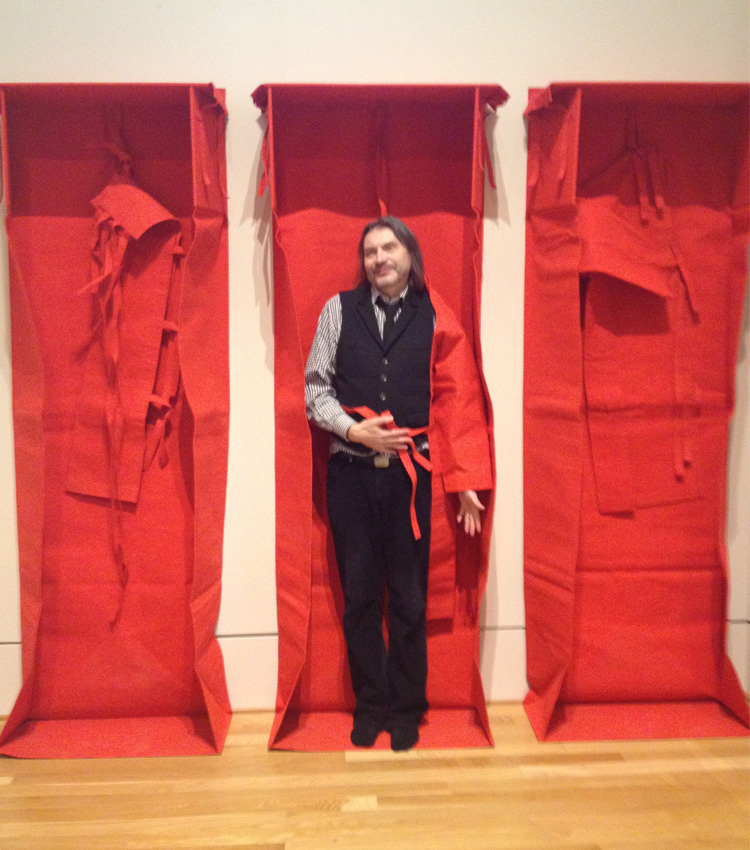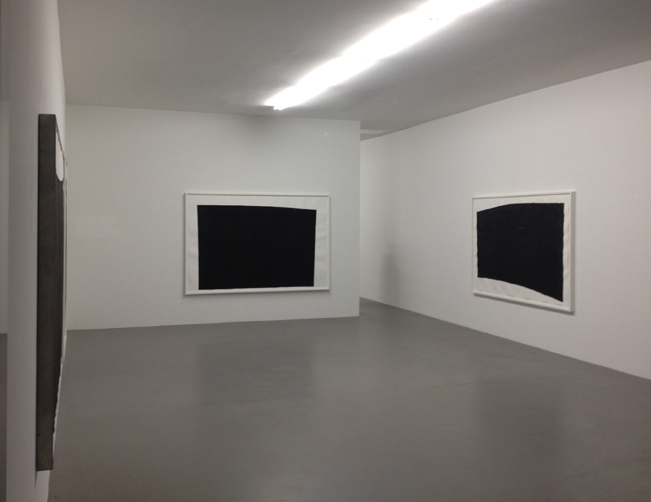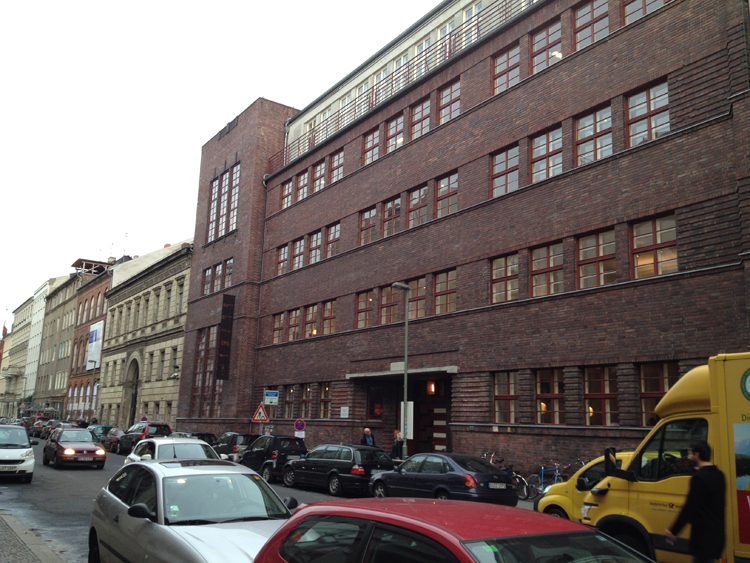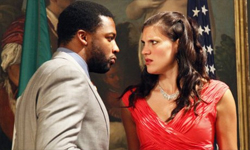
Curator at Large Klaus Ottmann engages with Roter Gesang (Red Song) by Franz Erhard Walther. Photo: Dorothy Kosinski
Curator at Large Klaus Ottmann demonstrates the participatory qualities of a Franz Erhard Walther sculpture, Roter Gesang (Red Song), at an Arts Committee meeting this week. Walther (born in Fulda, Germany in 1939) produces minimalist sculptures, often in brilliant primary colors, out of ordinary heavy canvas, that seem like soft versions of minimalist compositions. This will look brilliant near our Rothko Room. It also harmonizes with another new acquisition, Wolfgang Laib’s wax room, in which the visitor enters to appreciate the beautiful aroma, the rich surface, and the embracing small space. Our acquisitions meeting was a heady affair with the approval of many new works from photographs by Eugène Atget, to a painting by Al Held, a painting by Walter Dahn, and works by Helen Torr, to mention only a few.



